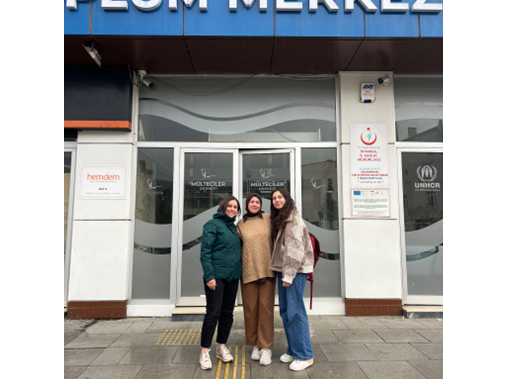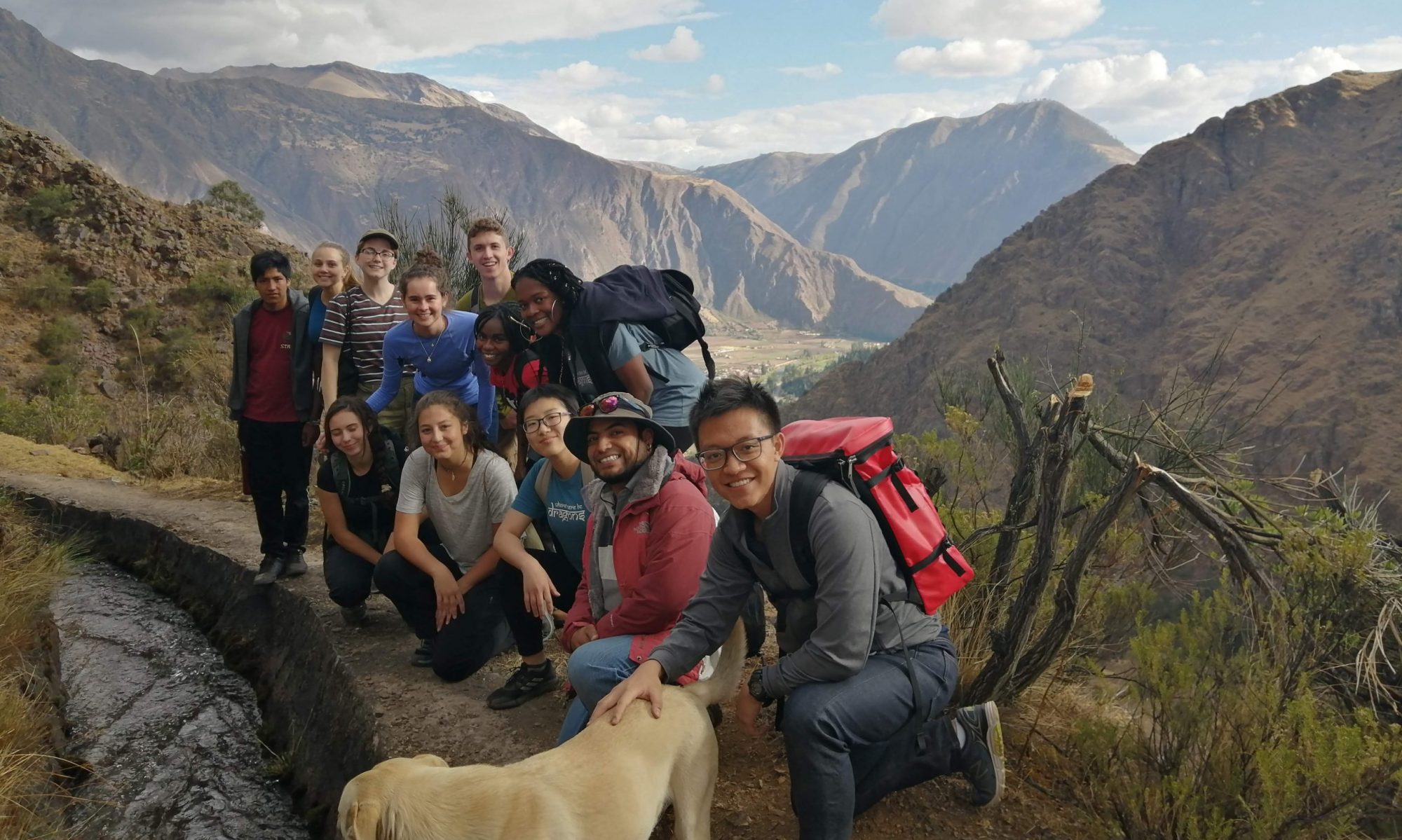By: Sofia Paredes

During our time in Istanbul, I was able to get better insight into the integration of Syrians into Turkish society. The highlight of the trip was my visit to the Refugees and Asylum Seekers Assistance and Solidarity Association in Sultanbeyli. The center is located 1.5 hours away from the center of Istanbul. Sultanbeyli felt like a completely different world. This is where most of the Syrian population in Istanbul resides. The signs here were all in Arabic and almost no Turkish was spoken.
Upon our arrival, I was lucky enough to be given a guided tour of the eight-story building by Fatma Betül Basyigit, Human Resources Manager of the Refugee Association. During our day at the center, we also met with the legal professionals and labor representatives of the organization. As Fatma highlighted, many of the issues experienced by the refugees today are similar to what they experienced 13 years ago, implying that despite the tremendous EU funds flowing into Turkey as part of the 2016 EU-Turkey deal, the money has been ineffective at serving the refugee population.
The services provided by the center were largely to make up for the shortcomings of the government, as the center focused on providing basic health support. The biggest obstacle to refugees’ financial stability seems to be their lack of access to formal employment according to Fatma.
This was also confirmed by members of DISK, The Confederation of Trade Unions of Turkey. I visited their offices to find out more about the role of Syrians in the Turkish labor market, and I learned that despite their effort to support Syrians through DISK’s Arab-speaking Legal Call Center, Syrians without a social security number are not allowed to join unions, and therefore have limited legal support.
Besides the legal barriers, social prejudice was also highlighted as a major barrier to integration. This is why Fatima Betül emphasized RASAS’s focus on social cohesion, and she was proud to show us the communal kitchen, where Syrian and Turkish women were baking together to support themselves financially but also to break down social barriers.
